Training Offer
Reach & Connect offers a wide variety of training and CPD opportunities. This is constantly evolving and developing so please keep checking our website for the latest opportunities.
All of our training is customisable and we work directly with schools, MATs and other provision to design training to meet your unique needs.
Training courses
We offer a variety of training courses at our dedicated training and development centre in Fishponds, Bristol. These are changing and developing regularly so please check the website for current availability. The range of courses available is extensive from specialist Team Teach courses to leadership training and lots in between.
The Briarwood Standard and The Briarwood Curriculums
If you are looking to implement The Briarwood Standard or any of our curriculums, you will need to book onto one of our training courses. Please see below for more information.
INSET training
We regularly work with schools and MATs to design their INSET training requirements. Perhaps you’re looking to implement a Positive Behaviour Support approach or would like training on Sensory approaches, we have a wide range of expertise. Take a look at the website or get in touch to discuss your needs.
Training - Twilights and Level 3 Award
Twilights One of our most popular training offers is our twilight programme. Our twilights are available in person and online and cover everything from teaching specific subjects with a SEND focus, to positive behaviour support, to specialist safeguarding areas. Additionally you have the opportunity to achieve a Level 3 Award in Supporting Learners with Complex Special Educational Needs and Disabilities (SEND) when you take part in our twilights. Click here to view our current twilight offer.
If what you are looking for isn't listed, or you would like to have bespoke training arranged, please contact us.
The Briarwood Standard
This Briarwood Standard has been written to provide anyone working with children and young people with complex SEND the core building blocks needed to design and deliver a framework of support that meets each pupil’s individual needs. It is intended to be both a practical guide and a reflective tool, supporting day-to-day practice while also encouraging deeper professional thinking about inclusion, wellbeing, and progress.
Staff and professionals can dip in and out of the different sections depending on their needs; whether they are looking for quick, actionable strategies or wish to explore the theory, research, and frameworks that underpin effective practice. Each section is organised to build understanding step-by-step, with clear examples drawn from our own context, as well as links to additional resources.
While developed to support practice at Briarwood, this handbook is also intended as a valuable resource for other schools, provisions, and professionals working with children and young people with complex SEND. It reflects our commitment to sharing good practice and contributing to the wider education community, helping to build a culture of collaboration, consistency, and high expectations across settings. Our collective goal is to ensure that every child, regardless of their needs or the setting they attend, experiences a sense of safety, belonging, and opportunity to thrive. This handbook acts as a starting point and overview of good practice, there will always be more research to be done, and of course, do consult with other professionals as appropriate.
The Briarwood Standard has been built around seven key areas, to make it easy to remember we have made these “The 7 S’s”
- Speaking (total communication),
- Structure,
- Support,
- Seeing the World Through My Eyes (empathy),
- Sensory,
- Surroundings,
- Special Notes
We have chosen these because, together, they represent the essential components of meaningful, accessible, and relationship-based practice for pupils with SEND. Each area contributes to a holistic view of the pupil, ensuring that their individual needs, strengths, preferences, and experiences are recognised and respected.
Those wishing to implement the Briarwood Standard can find out more here. Or book onto one of our training courses.
Briarwood EYFS Curriculum
The Briarwood curriculums are completely unique and has been designed and developed to take into account the needs of all pupils with SEND. A curriculum is the basis for any school to provide a meaningful and effective education to the pupils who attend. At Briarwood we believe this should be a broad, balanced and sequential approach which identifies and meets the needs of SEND pupils. We provide positive challenges to foster individual achievements and promote confidence and self-expression. This allows the curriculum to show progress of pupils over time; celebrating the challenging, enriching and developmental progress of all pupils.
Ofsted said "The curriculum is crystal clear. Ambitious, yet realistic, goals are set out in tiny, detailed steps. Consequently, learning activities help to get the absolute best from everyone."
Join Briarwood for a dynamic and inspiring training day designed to support Early Years and Key Stage 1 leaders and teachers working in mainstream settings with children who have Special Educational Needs and Disabilities (SEND). This session is especially valuable for practitioners who feel unsure about how to effectively plan and deliver learning for pupils with SEND within the Early Years Foundation Stage (EYFS).
The day begins by exploring the critical importance of early intervention, highlighting how timely, targeted support can transform outcomes for our youngest learners. Central to the training is the introduction of the Briarwood Early Years Stages (BEYS) — a bespoke, ambitious, and carefully sequenced curriculum designed specifically for children with SEND.
BEYS bridges the gap between statutory EYFS requirements and the unique developmental needs of SEND learners, offering clarity and confidence to teachers who may be uncertain about what to teach or how to adapt their provision.
Throughout the day, participants will gain:
- A deep understanding of the BEYS curriculum and how it can be implemented in mainstream settings
- Practical strategies to ensure compliance with EYFS standards while meeting the needs of SEND pupils
- Tools to create inclusive, meaningful, and impactful provision for learners with a wide range of needs
- Insights into high-quality, research-informed practice that supports developmental progress and engagement
Each participant will receive a copy of the BEYS curriculum to use in their own school, along with planning templates and examples of successful implementation.
Bonus Support: An optional 1:1 follow-up session (1 hour) with a Briarwood curriculum lead is available to help tailor BEYS to your specific school context and pupil needs.
Through expert guidance, real-world examples, and collaborative learning, you’ll leave with the confidence and clarity to embed inclusive practices and deliver a curriculum that enables every child to thrive — even if you’re new to working with SEND.
If you are interested in implementing our Early Years Curriculum, Briarwood Core Curriculum or Briarwood life skills and creative curriculum, please contact us or use the eventbrite booking links below.
Briarwood Core Curriculum
IMPLEMENTING AN INCLUSIVE SEND CURRICULUM IN YOUR SCHOOL – Core English and Maths
Are you looking for a clear, practical way to deliver a meaningful curriculum for pupils with Special Educational Needs and Disabilities (SEND)—even if you're unsure what to teach or where to begin?
Ofsted said "The curriculum is crystal clear. Ambitious, yet realistic, goals are set out in tiny, detailed steps. Consequently, learning activities help to get the absolute best from everyone."
The Briarwood curriculums are completely unique and has been designed and developed to take into account the needs of all pupils with SEND. A curriculum is the basis for any school to provide a meaningful and effective education to the pupils who attend. At Briarwood we believe this should be a broad, balanced and sequential approach which identifies and meets the needs of SEND pupils. We provide positive challenges to foster individual achievements and promote confidence and self-expression. This allows the curriculum to show progress of pupils over time; celebrating the challenging, enriching and developmental progress of all pupils.
Join us for a hands-on training day focused on implementing the Briarwood Core curriculum in your school. This session is ideal for leaders and teachers who want to embed inclusive, ambitious, and research-informed practice without having to design a curriculum from scratch.
What the day will cover:
- How to adopt and adapt the Briarwood core curriculum to suit your school context
- Understanding curriculum pathways and the graduated response
- Embedding inclusive practice into everyday teaching and learning
- Whole-school strategies that support all learners, not just those with SEND
What you’ll take away:
- Ready-to-use core curriculum handbooks with planning and assessment tools
- Practical guidance to support implementation, not just design
- A 1:1 follow-up session with a Briarwood curriculum lead to help tailor the curriculum to your school’s needs
This CPD is designed to give you the confidence and clarity to deliver a high-quality SEND curriculum—whether you're starting from scratch or strengthening existing provision.
If you are interested in implementing our Early Years Curriculum, Briarwood Core Curriculum or Briarwood life skills and creative curriculum, please contact us or use the eventbrite booking links below.
Positive behaviour support; Working with a model of Positive behaviour support
PBS is widely recommended as best practice for supporting individuals with SEND (see NICE guidelines, DfE publications). This bespoke course aims to give you knowledge and understanding of the fundamentals of Positive Behaviour Support (PBS) and practical tools that will support the development and implementation of PBS within your setting. In brief, we will cover;
- The background, evidence and rationale for the use of PBS
- Understanding individual needs and profiles
- Positive and Proactive behaviour support
- Functions of behaviour and establishing positive replacement behaviours
- Developing individualised plans
- Step by Step behaviour support
- Stages of behaviour
- Debriefing and restorative practice
- Barriers to change
- Capable environments
- Working as a team to promote positive change
If you would like training delivered to your setting directly, please contact us.
Team Teach; Level 1, 6 hour
The popular and accessible Level One (6hr) course in positive behaviour management is available for individuals supporting children, young people in low-risk Education settings.
Delivered by our experienced trainers this course will equip individuals with an understanding of the values and philosophy of the Team Teach approach. We are motivated by the need to support the individual with the aim of keeping those who have become distressed safe, as well as those around them. We believe that all behaviour is communication being driven by experiences and emotions. We deliver a toolkit approach that is 95% understanding behaviours and encouraging de-escalation. The 5% assesses the need for physical intervention in conjunction with a need’s analysis.
Who is this course for?
Anyone who is operating in a low-risk primary or secondary school setting would benefit from this course, which offers a grounding in positive behaviour management strategies applicable across these environments.
Please note – Positive Handling aspects will be mainly guiding and escorting safely*. If a greater degree of physical intervention is required, please refer to our Level 2 – 12 hour course. *We do also cover small person holds within 6 hour.
We run regular 6 hour courses, please have a look at our eventbrite page to see when the next course is running and book onto a course. If you would like training delivered to your setting directly, please contact us.
Team Teach; Level 2, 12 hour
Our engaging Level Two course (12 hr) in positive behaviour management emphasises positive relationships as being the key element in behaviour support, with physical techniques serving as only one part of an overall approach. As such, it is entirely compatible with Positive Behaviour Support (PBS) approaches. Delivered by our expert trainers with current and relevant experience of supporting behaviour in schools, we offer a toolkit approach that is 95% understanding behaviours and encouraging de-escalation. The 5% assesses the need for physical intervention in conjunction with a need’s analysis.
Participants will learn how to;
- Understand the drivers and motivations displayed by individuals who are distressed and may become aggressive and disruptive
- Build a stronger team confidence around supporting behaviour
- Utilise a toolkit of holistic strategies on de-escalation and crisis intervention, including the importance of targeted communication, both verbal and non-verbal.
- Understand and know relevant legal standards and expectations related to use of force, and of the reporting, recording, monitoring and evaluating requirements of incidents involving physical controls and reasonable force.
- Execute simple and safe positive handling and personal safety techniques: including guiding, escorting and holding in standing, sitting and kneeling positions safely, appropriate for your service setting needs, which focus on maximum care -minimum force
- Improve expertise and confidence in staying safe, competence to carry out simple de-escalation strategies, and applying physical intervention in conjunction with a need’s analysis.
Who is this course for?
This course is designed for individuals operating in a medium-risk environment. It is particularly aimed at those working with individuals whose behaviour foreseeably poses a risk to themselves or to others.
We run regular 6 hour courses, please have a look at our eventbrite page to see when the next course is running and book onto a course. If you would like training delivered to your setting directly, please contact us.
Trauma informed practice
We offer short twlight courses which aim to help you understand the definition of trauma, how trauma can impact a pupils emotional and physical wellbeing, and what we can do to create a supportive school environment that is trauma-informed. It will help you to develop a trauma-informed perspective that will guide your practice and interactions to with the aim of reducing the negative impact of trauma within school.
Further trauma training is on an individual school basis so it can be appropriately tailored to the settings needs. Please contact us to discuss this further.
There is a twilight course for this training, please click below to find out more.






